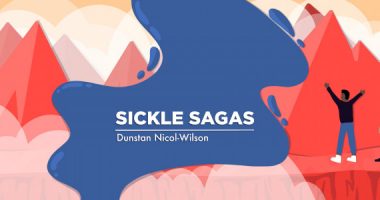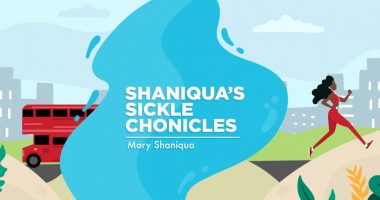Emmaus Helping Sickle Cell Disease Patients Outside US Obtain Early Access to Its Therapy

Emmaus Life Sciences has developed a sickle cell disease therapy that the United States has approved but regulators in much of the world are still reviewing.
Until other countries approve L-glutamine, those living there will be unable to obtain the treatment for the blood disease, which is painful, causes organ damage and cuts many lives short.
California-based Emmaus is taking steps to help patients outside the United States with a critical need obtain access to the therapy before their homelands approve it. Its partner in this effort is myTomorrows, a company whose main mission is to help patients obtain this kind of early access.
The focus of the partners’ Early Access Program is sickle cell disease patients in the European Union, the Middle East and South America who have exhausted all other treatment options.
L-glutamine obtained U.S. Food and Drug Administration approval as a sickle disease treatment in July 2017. The authorization covered adults and children age 5 and older. The treatment’s U.S. brand name is Endari.
The European Union has designated L-glutamine an orphan drug, a status that covers therapies for rare diseases. But it is still sifting through clinical trial findings that could lead to an approval.
“Patients with sickle cell disease are facing a significant unmet medical need, with few satisfactory treatment options available globally,” Dr. Ronald Brus, myTomorrows’ founder and chief executive officer, said in a press release. “The approval of L-glutamine in the U.S. is an important milestone in the development of therapeutic alternatives for this disease area. We look forward to working with Emmaus to support early access for physicians and eligible patients in the EU, Turkey, the Middle East and South America,”
As “we are working hard to achieve approval for L-glutamine in Europe, we are proud to work together with myTomorrows to provide physicians and their patients in need in the EU, Turkey, the Middle East and South America with the possibility of early access,” said Dr. Yutaka Niihara, the chairman and chief executive officer of Emmaus.
L-glutamine harnesses the therapeutic properties of glutamine, a naturally occurring amino acid that is crucial to the normal functioning of cells’ metabolism, or the conversion of food to energy.
Sickle cell disease patients have an altered form of hemoglobin, the protein the blood uses to carry oxygen to organs and tissue. This leads to red blood cells assuming a sickle shape instead of the normal oval shape, making them more susceptible to oxidation damage.
By increasing the amount of glutamine circulating in the blood, L-glutamine helps red blood cells generate more anti-oxidant molecules. This neutralizes oxidative cells in the blood, allowing sickle-shaped red blood cells to regain the flexibility they need to travel throughout the body, carrying oxygen to organs and tissue.






